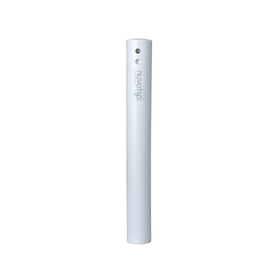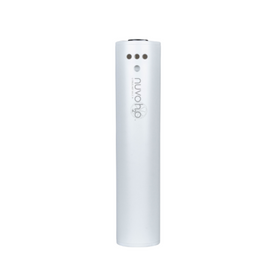
How Blackwater Recycling Helps Limit Home Water Use
Last Updated: Mar 19, 2025“Out of sight and out of mind”: that’s what most homeowners want when it comes to dealing with the blackwater (wastewater from toilets) that leaves their homes. While most homes are connected to a municipal sewer system, about 20 percent of homes have a decentralized wastewater management system (also known as a septic system). Unless the septic system overflows or malfunctions, most homeowners are content to never think about where their blackwater ends up. While tens of thousands of homes across the country have integrated a greywater recycling system to utilize the water from their sinks, showers, and washing machines, the idea of blackwater recycling is relatively unfamiliar.
Below, we look at the ecological problems that come with the enormous amount of domestic blackwater that U.S. homes produce every day. We then turn our attention to how blackwater recycling systems work, some of the benefits of these systems, and the top companies designing and installing blackwater recycling systems.
Problems with Blackwater Waste
Toilets make up about 31 percent of total domestic water use, with each person flushing the toilet an average of five times each day. For homes with installed efficient or dual flush toilets, the total amount of water used per person is about 9.1 gallons, though older toilets can use double or even triple that amount of water. A family of four, then, most likely sends to the sewer or their septic system an average of around 40 gallons of blackwater each day, or 14,600 gallons each year. That’s an enormous amount of water being flushed down the toilet, both literally and figuratively.
Most people know that blackwater can be a dangerous source of pathogens and contaminants. One out of four people in the world, mostly in developing countries, continue to get contaminated water, leading to serious health problems. While the United States requires all wastewater to be treated (either with an onsite septic system or via a larger wastewater treatment plant), many wastewater treatment plants across the country are centuries old and are quickly deteriorating. Sewage overflows are increasingly common, and this can severely affect local ecosystems while also increasing the risks of contaminating our public water sources.
Environmentally-minded homeowners could opt for composting toilets as a way to completely get rid of the problems associated with domestic blackwater. If the thought of going without a flush toilet seems like a bit of a stretch for your household, blackwater recycling systems might be an option worth considering.
Table of Contents
- How Does Domestic Blackwater Recycling Work?
- What Are the Benefits of Blackwater Recycling?
- What Companies Sell Blackwater Recycling Systems?

How Does Domestic Blackwater Recycling Work?
Blackwater recycling systems begin like ordinary household septic systems. Household blackwater is sent to a tank where anaerobic organisms and bacteria begin the process of breaking down the sludge. Instead of simply releasing that contaminated water into a leach field where it cannot be used, blackwater recycling systems include three other components: aeration, sludge settling, and irrigation.
During the aeration phase, water and air are sent into an aeration chamber. This allows for aerobic bacteria and microorganisms, which feed on the nutrients in the blackwater and thus further get rid of any potential pathogens. The leftover material from the aeration phase is then sent to a sludge settling chamber, where the sludge sinks to the bottom of the tank. The water rises to the top and is passed through a filter that acts as bacterial biomass, further eliminating any remaining contaminants or potentially dangerous pathogens.
The filtered and decontaminated water is pumped into a separate tank to be reused. While recycled blackwater should never be used for human consumption, it can be used as part of an innovative lawn irrigation system. Alternatively, you could re-route some of the plumbing in your home so that this treated blackwater could be sent back to the toilets for flushing purposes. In this way, the roughly 14,000 gallons of water that the average household uses each year to flush toilets is circularly reutilized and recycled. In larger commercial or industrial buildings, these same blackwater recycling systems can send the recycled water to the building’s cooling tower.
What Are the Benefits of Blackwater Recycling?
Several benefits come with installing a blackwater recycling system into the home. First and foremost, your household will be recycling tens of thousands of gallons of water that would otherwise be only used once before being sent to the sewer. The savings on your monthly water bill should more than compensate for the energetic cost of running the blackwater recycling system.
A domestic blackwater recycling system also helps ensure that your household is not contributing to the environmental contamination of delicate ecosystems. Entrusting your local water authority or wastewater treatment plant to deal with your household blackwater is certainly the most common approach. However, as these systems get older, overflows will be increasingly common, especially during severe weather events where excess water flowing into the sewer can put high-stress levels on the system.
For homes located near water or wetlands, domestic septic systems can also potentially contaminate delicate aquatic ecosystems through overflows or through contaminating groundwater sources.
A domestic blackwater recycling system can also help to reduce the carbon footprint of your home. Wastewater treatment plants need to have a large array of pumps, motors, and other equipment operating around the clock, requiring enormous energy. According to the EPA, “drinking water and wastewater systems account for approximately 3–4 percent of energy use in the United States, resulting in the emissions of more than 45 million tons of GHGs annually.” Blackwater recycling systems at a household level show potential for saving energy and decreasing greenhouse gas emissions associated with wastewater management.
What Companies Sell Blackwater Recycling Systems?
While domestic blackwater recycling systems are relatively new, a few companies specialize in installing and maintaining these systems.
- BioRock: BioRock is one UK-based company that offers a wide range of different sizes for domestic blackwater recycling systems designed for buildings that house between 4 and 30 people. Their systems have been tested and offer purification efficiency of between 96 and 99 percent.
- Azuwater: Azuwater is another European company that specializes in a wide range of water recycling services. Their systems are designed to work for flow rates of up to 1,000 liters per day, which is usually more than enough for most households.
- Aquacell: Aquacell is an Australian-based company that also has offices located in the USA. While their blackwater recycling systems are mostly tailored for large commercial buildings, they can also build and design systems for multi-family residences.
Tobias Roberts
Tobias runs an agroecology farm and a natural building collective in the mountains of El Salvador. He specializes in earthen construction methods and uses permaculture design methods to integrate structures into the sustainability of the landscape.










